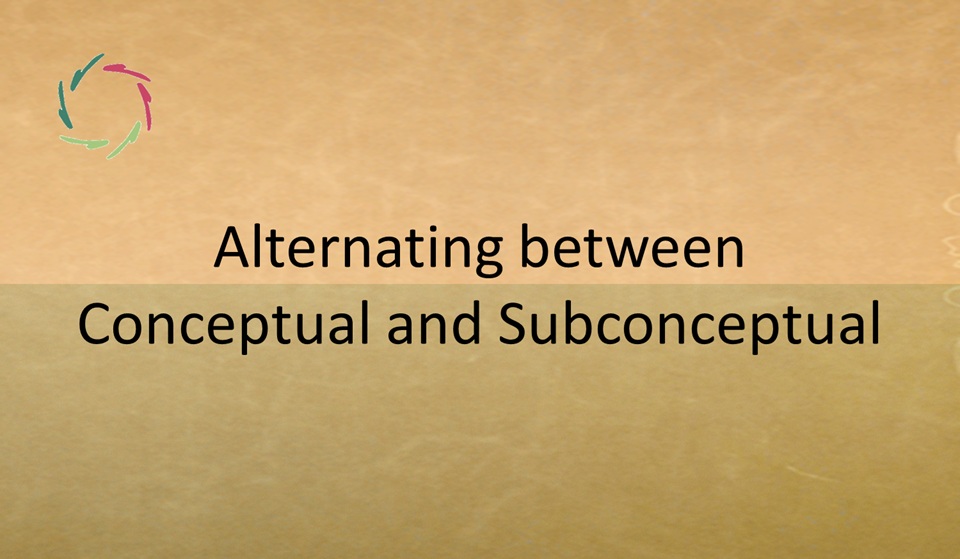Certainty Through Doubt

We often equate certainty with the absence of doubt, imagining it as a solid foundation that keeps us safe from ambiguity. But what if the deepest and most resilient certainty emerges not by avoiding doubt, but by fully embracing it?
This blog explores a paradox: true certainty requires doubt. Doubt, far from being an obstacle, is the very crucible in which genuine conviction is forged. While this idea challenges conventional assumptions, it offers a transformative way of understanding truth and living with authenticity.
Why doubt is often feared
Doubt is uncomfortable. It unsettles the mind and stirs emotional unease. Humans are wired to seek stability, and culturally, certainty is often equated with strength and decisiveness. Questioning too much can be seen as weakness, hesitation, or even a threat to established norms.
This fear of doubt creates a fertile ground for manipulation. Propaganda, dogma, and superficial narratives exploit this discomfort by offering quick, unexamined certainties. These certainties may soothe for a moment, but they come at the cost of depth and authenticity.
From the AURELIS perspective, however, doubt is not a sign of weakness but an opportunity for growth — a pathway to uncover deeper truths.
The dynamic nature of truth
Truth is not a fixed point to be discovered once and for all. Instead, it is dynamic, evolving as we engage with it through questioning, reflection, and integration. The AURELIS view holds that truth emerges as a living process, blending conceptual reasoning with subconceptual depth.
Doubt plays an essential role in this dynamic process:
- It allows space for reflection and guards against premature conclusions.
- It invites us to explore deeper layers of understanding, aligning internal and external realities.
By embracing doubt, we engage in an ongoing dialogue with truth, nurturing it rather than imposing it.
Certainty built through the fires of doubt
Imagine doubt as a crucible — intense heat that refines raw materials into something stronger and purer. Similarly, doubt sharpens and fortifies our beliefs through a process of testing and refinement:
- Initial questioning: Doubt begins by uncovering assumptions and biases that shape our understanding.
- Deep exploration: Through open inquiry, we seek new perspectives, evidence, and insights, including those from the subconceptual mind.
- Emergent certainty: Genuine conviction arises naturally when alignment is achieved between inner truths and external realities.
This process requires inner strength — a willingness to sit with uncertainty and allow it to guide us toward deeper clarity.
The role of free will and inner growth
Certainty formed through doubt is fundamentally different from rigid beliefs or imposed certainties. The latter are often brittle and vulnerable to collapse when challenged. In contrast:
- Doubt-driven certainty is self-owned, rooted in authenticity and open to change.
- Propaganda and coercive influences may mimic certainty, but their rigidity makes them fragile and dependent on external reinforcement.
The AURELIS principle of inside-out growth aligns perfectly here. Doubt invites individuals to engage deeply with their inner truths, fostering organic transformation rather than superficial conformity.
Practical applications of ‘certainty through doubt’
This principle isn’t just philosophical — it has practical relevance in many aspects of life:
- Doubt encourages thoughtful choices by challenging assumptions and opening up possibilities.
- Doubting one’s views creates openness to dialogue, reducing polarization and fostering mutual understanding.
- Doubt acts as a defense against propaganda, enabling critical evaluation of external influences.
Tools for embracing doubt:
- Reflective questioning: Ask yourself, “What if I’m wrong?” or “What haven’t I considered?”
- Journaling or autosuggestion: Use these practices to explore subconceptual insights and integrate them with conscious reasoning.
The ethical dimension of certainty
Certainty without doubt risks becoming dogmatic, leading to rigidity and conflict. Ethical responsibility calls for embracing doubt as a means to:
- Prevent the imposition of one’s beliefs on others.
- Foster humility and openness, both in personal relationships and society.
By grounding certainty in doubt, we cultivate convictions that are not only authentic but also respectful of the diversity and complexity of human experience.
AURELIS perspective: doubt as an ally
The AURELIS principles of openness, depth, and respect frame doubt as an essential ally in the journey to truth. Autosuggestion supports this process by creating space for inner exploration:
- It encourages individuals to engage with their own doubts without fear, allowing clarity to emerge naturally.
- It strengthens the bridge between conceptual understanding and subconceptual depth, fostering integration and alignment.
Doubt, in this view, is not an obstacle to truth but a companion that guides us toward it.
The certainty that emerges
The paradox of certainty through doubt reveals that truth is dynamic, flexible, and rooted in self-awareness. When we embrace doubt, we don’t undermine truth — we uncover it in its most resilient and authentic form.
By welcoming doubt as a tool for growth, we move closer to a life of clarity, strength, and depth. The journey may be challenging, but the certainty it brings is worth every step.
Remember, doubt is not the enemy of truth — it is its most loyal ally.


